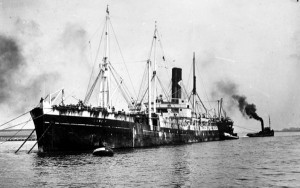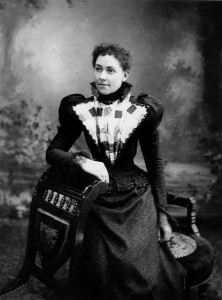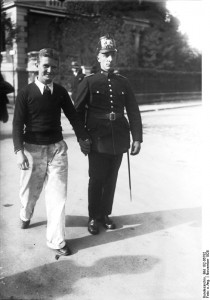People were always desperate to come to America, so desperate in fact that they would routinely stow away aboard ships back in the day. The following are a quintet of stowaway stories from the Brooklyn Daily Eagle.
••••••••
“Three Year Old Stowaway” (December 23, 1902): “A boy stowaway 3 years old arrived to-day on the steamship Citti di Milano from Naples. He refused to talk about himself, but it was believed his mother would claim him when she landed at Ellis Island. The boy was classified as clandestine.”
••••••••
“Will Be Sent Home” (March 15, 1888): “Mrs. Lette Fendre, the stowaway, will be returned to Germany by the steamer Lahn, which sails this morning. Collector Magione would not allow her to land until he had got some assurance that she would not be a charge on the county. When the woman arrived she said that a sister named Mrs. Cook, living at 435 Carroll street, Brooklyn, would pay her fare for the passage in coming from Germany. This was not satisfactory to the Collector, however. Yesterday a young man visited Customs Officer Judd. He offered $27, the passage money, to have the old lady released. He was told to see the Collector, but has not since put in an appearance. Mrs. Fendre said: ‘I don’t know who he was. My niece in Brooklyn got married while I was in Germany, but I guess that isn’t her husband. It doesn’t look like the young man who was sparkin’ her when I was here before.’ Repeated explanations were ineffectual to make Mrs. Fendre comprehend her position.”
••••••••
“Stowaway Girl a Bride” (September 25, 1899): “Olivette Nielson, the girl stowaway, who managed to get from her home in Copenhagen to New York by secreting herself on the Norge of Thingvalla line, was married yesterday at the Barge Office to Andrew Guttormansen of 215 Twenty-seventh street, Brooklyn. Olivette and Andrew were lovers in their native city and Andrew came over about ten weeks ago to prepare the way for his sweetheart. Two weeks or so ago he wrote that he was ready for her, but he forgot to send her the money for her passage. Olivette was not put out by this little detail, however. She proceeded to conceal herself on board the Norge just as it was about to sail from Copenhagen. She was not discovered until the vessel was far out to the sea.”
••••••••
“Beck Fully Recovered” (December 9. 1902): “Johann Beck, who arrived in this country last week after having been shipped as a ‘model’ in a packing case in the hold of the Hamburg-American steamship Palatia was discharged as recovered from the effects of his exhaustion and starvation to-day at St. Mary’s Hospital Hoboken. He has been taken to Ellis Island, where he will await examination before the board of special inquiry as a stowaway.
He is still pale, but is able to walk about and is hopeful of being allowed to land. He says that he was not seeking notoriety, but was genuinely anxious to come to this country and took chances to do so. He adds that he is willing to work and expects to get work if allowed to land. The agents of the Hamburg-American Company have offered to pay his fine of $10 if his health stands the test and he is permitted to land.”
••••••••
“Objected to Going Back” (September 5, 1900): “Battery Park was the scene of an exciting chase after an immigrant about to be deported this morning escaped. The fugitive was Jacob Dreher, 23 years old, who arrived from Antwerp on August 28 as a stowaway on the Red Line steamer Southwark. Dreher was taken to the Barge Office and ordered returned to Belgium. With a number of other persons this morning he was in a wagon in front of the Barge Office awaiting transportation to the Southwark pier. Watching his chance Dreher leaped from his place, and before Professor Smith could realize what was happening the young fellow was halfway across the park. Smith and Policeman Grogi started in pursuit, and they were joined by several hundred men. A man who had been sitting on a bench endeavored to stop the immigrant and received a blow on the point of the jaw that knocked him over into the grass. Another man undertook the task a short distance away and received almost as violent treatment. Two policemen saw the chase and stepping aside allowed Dreher to run into their arms. He was taken back and manacled to the wagon. All the way back he fought, and it was all the policemen could do to restrain him.
‘Hurrah for liberty! Hurrah for liberty!’ shouted the immigrant, shaking his manacled hands at the crowd. The young fellow was finally put aboard the ship.”



